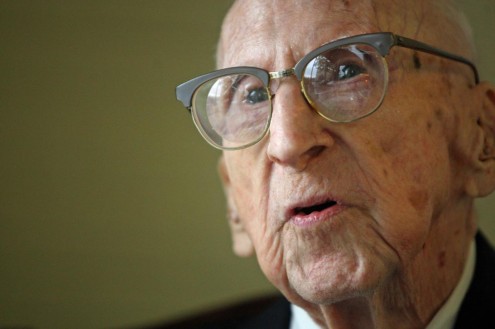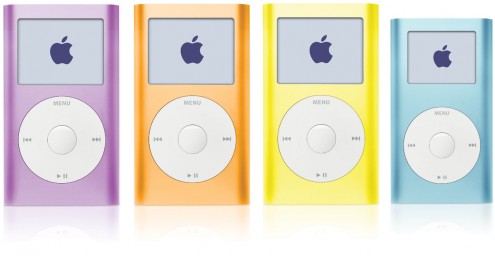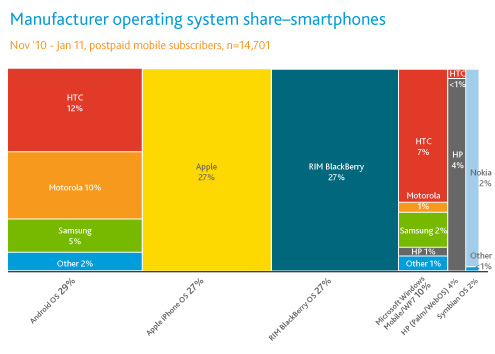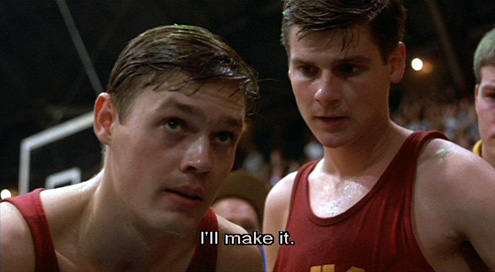In the mid 2000s, live blogging was all the rage. Since streaming video was still in its infancy, a live blog was the only way you could get real-time updates of an event from a remote location. It was a great recourse, as onlookers could react, comment, and update each other in real-time.
Today, live blogging is mostly useless. Take this year’s E3, for example. Every game company either streamed their live press conference or had a partner do it for them, most of which could be embedded and streamed live to your own website or blog. Nevertheless, every major blog I came across continued to perpetuate the “live blog” like it was still an asset to the reader.
Unsurprisingly, comments have decreased on these live blogs because no one really cares anymore. The solution: Just slap a live video embed on your site and be done with it. You’ll still get all the reader participation you had before and cut down your workload.
… At 10:30 am even. And here I thought the early bird always got the worm.
<br /> <a href=”http://polldaddy.com/poll/5115412/” mce_href=”http://polldaddy.com/poll/5115412/”>In the next 5 years, what platform will you play the most video games on?</a><span style=”font-size:9px;” mce_style=”font-size:9px;”><a href=”http://polldaddy.com/features-surveys/” mce_href=”http://polldaddy.com/features-surveys/”>customer surveys</a></span><br />
 Today, auctions represent only 31% of all Ebay sales. A decade ago, Ebay was suppose to change the way everything was bought and sold. That didn’t happen. A new article in Wired tells why:
Today, auctions represent only 31% of all Ebay sales. A decade ago, Ebay was suppose to change the way everything was bought and sold. That didn’t happen. A new article in Wired tells why:
To begin with, the experience of auctions changed over time, generally in ways that made them less appealing to both buyers and sellers. Scot Wingo, CEO of ChannelAdvisor, which consults for ecommerce companies, points to the advent of sniping—the practice of placing winning bids at the last second—as something that has alienated ordinary shoppers…
Bargains, too, have become less common, as the market matured and people on both sides of the transaction became savvier…
Really, though, the biggest factor in the decline of the auction may simply be that the novelty of bidding wore off. “The Internet stopped being a source of wonder and became a place to do certain kinds of business,” Koehn says. “Once that happens, you start to think about things like ‘Does it make sense to spend this much time on an auction when I might not even get the item in the end?’” In econospeak, the hedonic benefits of bidding on eBay diminished.
In my opinion, I think the information age has simply normalized pricing. By that I mean you can save a buck or two on ebay, but you really have to work for it… and wait for it. Why not “buy it now” for a few bucks more elsewhere?
 According to “certified” + estimated or “claimed” sales compiled by Wikipedia, they are as follows:
According to “certified” + estimated or “claimed” sales compiled by Wikipedia, they are as follows:
- The Beatles
- Elvis
- Michael Jackson
- Abba
- Madonna
- Led Zeppelin
- Queen
- Elton John
- Mariah Carey
- Celine Dion
No disrespect, but I was surprised to see Madonna, Elton, and Mariah so high on the charts. Who knew?
[youtube]http://www.youtube.com/watch?v=yviIgIDxlwc[/youtube]
It’s gonna be awesome.
[youtube]http://www.youtube.com/watch?v=hpUISVSoNOk[/youtube]
American men’s tennis has seen better days, although Roddick has kept things interesting, reaching the Wimbledon finals four times and playing in that epic match against Federer in 2009.
 More rare color photos of the depression here
More rare color photos of the depression here
Via The Atlantic:
If The Federal Government’s household income was $55,000 per year, they’d actually be spending $96,500–$41,500 more than they made! That means they’re spending 175% of their annual income! So, in 2011 they’d add $41,500 of debt to their current credit card debt of $366,000!
Yup, it’s as bad as you thought.
Would be interesting to see what Rome’s debt-to-income ratio looked like before they fell.
 Okay, that’s not true. But I haven’t IM’d more than 5-8 lines of text in the last five years.
Okay, that’s not true. But I haven’t IM’d more than 5-8 lines of text in the last five years.
Why? I loathe the technology. It’s so obtrusive. Consequently, I only turn on Skype when I need to make a call. And I haven’t logged in to Google Chat since 2006.
No, asynchronous email is a better respecter of your schedule when it comes to TCB (taking care of business). And meetings and phone calls are my go-to source for real-time communication.
What about you: do you still use instant messenger? If so, why?

Photo: Edmund Hillary
Take it away, fellas:
“Why make a fuss over something that’s done anyway? I was never one to obsess about the past. Too much to do in the future!”—Sir Edmund Hillary, the first person to summit Mount Everest
“It has been a long road … From a mountain slave, a bearer of loads, to a wearer of a coat with rows of medals who is carried about in planes and worries about income tax.”—Tenzing Norgay, the Buzz Aldrin of Mount Everest (aka the second man to step foot on the summit, immediately following Hillary)
These words are loaded with so much more meaning given what each man accomplished.
Put differently, talk is cheap. Experience is everything.
[youtube]http://www.youtube.com/watch?v=TVqe8ieqz10&feature=player_embedded[/youtube]
The video could use a little editing, but it does an effective job in selling Google’s version of cloud computing. So much, in fact, I predict these “computer-like objects” will be a lot more relevant than tablets, but only if they come down in price. The reported $350-500 launch models, available June 15, are too much.
See also: My Chromebook is a fast tablet with a faster keyboard
[youtube]http://www.youtube.com/watch?v=JJFqRcvq3rw[/youtube]
Samsung sponsored this guy Kenton Cool (awesome name) to summit Mount Everest for a ninth time this month. In exchange, the company had him place the first cell phone call ever from the highest point on Earth, to his wife. What a moment.
The baby woke at 8:00 am today. She downed her bottle in five minutes. Played for 30 minutes. Ate for 30 minutes. Then played for another 35 minutes before giving the univiersal “I’m tired” signal: She cried.
By 9:45, she was dozing off in her crib. She doesn’t always take a morning nap this early; sometimes she’ll go until 10 or maybe 10:30. But like clockwork, our other two did this as well.
Noting that, imagine if adults could only go two hours in the morning before requiring a nap. Corporate America would get grouchy and fussy by 10:00 am!
 This is neat and all, and the inventor created a great little game called Lost Winds that I enjoyed. But it seems useless without ethernet and/or wireless networking. Furthermore, if you can afford a monitor with HDMI-out, I’m guessing you can afford a computer. Am I wrong?
This is neat and all, and the inventor created a great little game called Lost Winds that I enjoyed. But it seems useless without ethernet and/or wireless networking. Furthermore, if you can afford a monitor with HDMI-out, I’m guessing you can afford a computer. Am I wrong?

Among other things, I’ve been working as a media consultant for the state of Utah this year — specifically related to Utah Lake. To help promote the lake as a tax-funded and public resource, I helped officials launch and now maintain a new editorialized website at utahlake.gov (pictured).
Local media, however, isn’t a fan — at least not yet — and rightfully criticized the site’s birth warts. “Government officials have launched a website aimed at helping locals stay home to vacation on Utah Lake, but the launch hit rough waters,” wrote Caleb Warnock, reporting for the Daily Herald. “On Wednesday, repeated attempts to find recreation information were greeted with this message: ‘The page you were looking for could not be found.'”
Not only did the site launch with broken links, there were a few proofreading errors too, not to mention editing notes that were never meant to be made public.
Kind of embarrassing. Continue reading…
Ask any American what they think of the English Royal Family, and even the most liberal voter will tell you it’s a waste of taxpayer money (since the family is powerless). Whether or not that’s the case, the level of U.S. government waste far exceeds that of the Royal Family.
For example, the British Royal Family costs the UK taxpayer $64 million per year, excluding travel and security. That’s about a dollar per person. The travel budget for the U.S. president alone is several times that.
The Homeland Security Agency, which like the Royal Monarchy, is suppose to make citizens feel all warm and fuzzy inside, costs the U.S. taxpayer $55 billion a year! What do we get in return? Mandatory shoe removal at airports, 15,000 wasted jobs, a failed alert system, and more exciting deployments for the Armed Forces (you know, the people who should be managing homeland security in the first place, like they honorably and successfully did prior to HSA’s creation).
And that’s just one of hundreds of wasteful agencies.
So the next time you get all high and mighty on Team America for not wasting money on an opulent spokesfamily, ask yourself what U.S. department was watched by more than 2.5 billion people in a mostly favorable light this morning?

A $25,000 Office Pod.
In The Know: Should The Nation’s Unemployed Be Buying New Apple Computers?
Reporting for Fox & Friends (slideshow here)
 Convincing reasons here.
Convincing reasons here.
Speaking personally, I’ve owned a Blu-ray player (PS3) since 2007, yet I only own maybe five Blu-ray discs. Yes the picture quality is nicer, but upscaled DVDs and streaming movies look nearly as good, and up until this year, they were a whole lot cheaper.
The May issue of Wired Magazine has a fascinated piece on injectable vasectomies that can be reversed with a follow-up shot. The procedure, dubbed by Wired as “the biggest advance in male birth control since the condom,” is flawless so far in clinical trials and dirt cheap to administer. Cool.
But I resent the article’s assertion that if successful, the procedure would “increase the chance” of humanity escaping poverty (p. 171). People aren’t poor because they have a lot of kids. They’re poor because they’re oppressed, complacent, or both. Offspring have nothing to do with personal wealth. (At least mine don’t, and I’m a freakin’ thousandaire!)
Of course, if you’re an absent parent and express your “love” in the form of material gifts, than yes—parenting children can be expensive. But otherwise, children have less impact than you think when it comes to a sinking or swimming family.

According to Walter Breuning, a resilient man who did:
- Embrace change, even when change slaps you in the face. (“Every change is good.”)
- Eat two meals a day (“That’s all you need.”)
- Work as long as you can (“That money’s going to come in handy.”)
- Help others (“The more you do for others, the better shape you’re in.”)
- Accept death (“We’re going to die. Some people are scared of dying. Never be afraid to die. Because you’re born to die.”)
- Keep your mind and body busy (“You keep both busy, and by God you’ll be here a long time.”)
What an inspired life. (Thanks, Tim)

My latest for Fox & Friends. Not a shocker, but I still found it amusing.
 A recent quote my wife found:
A recent quote my wife found:
“Be who you are and say what you feel because those who mind don’t matter and those who matter don’t mind.”
Not only is Dr. Seuss a fun read for kids, he’s wonderfully metaphoric when read by an adult.
I’ve been in awe of his work while re-reading it to my kids.
J Dawgs is delish! (check the user reviews)
[youtube]http://www.youtube.com/watch?v=etm54u7MA3A&feature=player_embedded[/youtube]
But I suspect this is far to complicated to ever catch on. And how on earth are amateur, aspiring, or otherwise young players ever suppose to recreate that crazy field!?
Not gonna happen.
PS – Good luck trying to find four goalies. It’s hard enough to find two in soccer.

You don’t have to be a golf fan to appreciate how it went down in Georgia yesterday. My wife and I were affixed to the TV—and we never watch golf.
I received the following email auto-responder this week:
“In a mtg.”
“Really?” I thought to myself. “That’s your auto-responder: you’re in a meeting?! And you’re so important that you can’t even spell out meeting??!!”
Jeez. “Out of office” or “on vacation” notices are one thing. But life must be pretty bad for the ego that feels inclined to tell ALL correspondence that they’re “in a mtg.”
Incredible, actually.
 Hallelujah, fatty! Your religious beliefs may give you greater peace of mind and self-worth. But it might also be blinding your ability to detect love-handles.
Hallelujah, fatty! Your religious beliefs may give you greater peace of mind and self-worth. But it might also be blinding your ability to detect love-handles.
Says a new study by Northwestern University, “Young adults who frequently attend religious activities are 50 percent more likely to become obese by middle age as young adults with no religious involvement.” A thirteen year-old study by Purdue said the same thing: “Religious people are more likely to be overweight than are nonreligious people.”
Not only that, but Mormons tend to be five pounds pudgier than other believers. The reason? Religious folk are more accepting of their bodies and tend to be more content with their lives. Therefore, they’re more likely to overlook gluttony, summarizes the Mormon Times. As for Mormons being more obese than other devotees, Mormons are asked to abstain from even more stuff than most. With food being one of the exceptions, they engorde on it, said a BYU professor in 2006.
Ironically, the Northwestern study also supported the long-held belief that religious folks tend to live longer, largely because they don’t indulge as often in alcohol, drugs, and smoking. Go figure.
[youtube]http://www.youtube.com/watch?v=BvTNyKIGXiI[/youtube]
It’s not a lie if you believe it.
(Thanks, Wesley)
[youtube]http://www.youtube.com/watch?v=Bu927_ul_X0&feature=player_embedded[/youtube]
Long live the mouse and keyboard… at least until a better replacement comes along (which it hasn’t).
[youtube]http://www.youtube.com/watch?v=Z9SPuUntnno[/youtube]
Bonus points to Russ for saying “scuzzed out.” And I love how tiny his head looks when he walks onto the street in new looks.

See those three stripes? They’re called “diva,” not pink, according to Adidas. And the white you see is “running white,” as opposed to idle white. I know because that’s what the box on my kitchen counter says. (They’re not for me, mind you, but the little soccer player I father.)
Adidas isn’t the first shoe manufacturer to use confusing names. I’ve seen red called “fire” on Nikes and blue called “ice” on Reeboks.
The silliness makes me wonder: Could shoe manufacturers sell more shoes by using color names people understand? Granted, people don’t shop by shoe boxes; they shop by display. But I imagine some prospective buyers have crossed an unsuspecting color and decided to pass on it. I know for a fact that ambiguity always hurts your chances.
That said, is there any proof that unconventional (or idiotic) color naming boosts sales? I doubt it.
Either way, at least Adidas got the hueless color right when describing the above shoes. They call it “black.”

They have cash—lots of it.
I’m a big fan of cash. Love the cash.
I’m amazed by the phrase “agree to disagree.”
It’s a lazy expression. It’s contradictory. Yet it works. But only because it’s a cliche.
If it weren’t a common expression, the receiver would dismiss it as being stupid and probably stay on the offensive. (See Mister English Teacher: Who said cliches don’t have a place in language. Writing never, but speech, yes.)
In my own life, I’ve agreed to disagree (or agreed to differ) on numerous occasions. It’s funny how it always seems to work in terminating thought. It’s like the white flag of verbal disagreement. “Oh, I give up.”
More impressive, however, is that “agreeing to disagree” instantly facilitates civility and tolerance. Who would of thought that a dumb cliche could be capable of such a thing?
[youtube]http://www.youtube.com/watch?v=CAUP1wsmqUU[/youtube]
Classic. Song here

For when a rascal just doesn’t cut it. (Thanks, Morgan)
My mother’s chain letters fail to amuse more often than not. The below is the rare exception.
I’m not entirely convinced they’re all paraprosdokians, as labeled. Either way, a handful of them made me laugh at loud (i.e. #9).
Either that or I’m getting old. Continue reading…
[youtube]http://www.youtube.com/watch?v=jjvkw5CE4mU[/youtube]
As seen on CBS prior to BYU beating Gonzaga en route to the sweet sixteen. Go, Cougars! (Note: This is my favorite pre-game intro.)
Let me tell you.
[youtube]http://www.youtube.com/watch?v=JINC4wLP_fE[/youtube]
World’s greatest shallow-water diver?
 Bob Marley, Jimmy Cliff, and Rocky Dawuni in that order. How about you?
Bob Marley, Jimmy Cliff, and Rocky Dawuni in that order. How about you?

Reminds me of when I was a kid. Click for more. Continue reading…
 Music has always been a big part of my life. I’m good on my feet and have better rhythm than most other white men. Happily, my first-born (and subsequent children) share my affinity for song and dance.
Music has always been a big part of my life. I’m good on my feet and have better rhythm than most other white men. Happily, my first-born (and subsequent children) share my affinity for song and dance.
I first noticed Sadie’s liking to music when she began shaking her hips as six-month old — while I played “Africa Unite” by Bob Marley on a sunny afternoon. Amazingly, for what was then a first time parent, she was moving to the beat. How could this be? How does a human only 180 days old recognize, understand, and know how to dance to the beat?
It must be genetic.
To this day, Sadie spends a large portion of her time banging on piano keys, moving to the beat, strumming my guitar as she passes by, dancing to Kids Songs DVDs, and requesting playback of her hokey poky CD. She enjoys music more than most, as do I.
Did I pass it on to her? I don’t know, but I’m convinced there’s some inheritance involved. How couldn’t there be?
While I appreciate other forms of entertainment — like film, video games, and books — music would be the last thing to go in my book. It’s more than just entertainment, it sets the pace of life. And as corny as its sounds, song and dance makes everything better.
Originally published January 23, 2008

Source: Nielsen
Insightful article by Wired on bucking offshoring manufacturing in favor of higher yield American manufacturing:
Today, a year since Krywko’s decision to go against the offshoring tide, Sleek Audio has a full-scale manufacturing operation that can be reached via a 15-minute car ride rather than a 24-hour flight. Each earphone costs roughly 50 percent more to produce in Florida than in China. But Krywko is more than happy to pay the premium to know that botched orders and shipping delays won’t ruin his company. And so far, the gambit appears to be paying off: Based on enthusiastic customer response, Sleek Audio is now projecting 2011 to be its most profitable year ever.
Globalization has been great. But thanks to latency, localization is thriving once more. It’s like the best of both worlds now.

More than a century ago, steel replaced iron as the world’s most popular metal (or “alloy” for you technophiles). The reason: Steel is incredibly strong, useful—and thanks to innovators such as Henry Bessemer and Andrew Carnegie—it’s cheaply made.
Better living through metallurgy. But generations after steel’s commoditization, might there be a superior replacement material? Continue reading…

I wish I could have seen my Dad play basketball.
My uncle tells me he was a phenomenal shooter, regularly putting up 30+ points a night against amateur competition. My old man reputedly scored 50 points in a single half of intramural college ball once (!).
More impressive from a precision standpoint, he shot 50 consecutive free throws at my neighbor’s house when I was a boy. He stopped before missing his first shot so he could get home “for supper,” he says. Talk about ending on a high note.
Marveling at other great shooters this year, including Jimmer Fredette, whom I’ve watched at close range, I asked my Dad what it takes to be a great percentage shooter. His reply:
“It is a combination of natural and great physical skill, thousands of hours of practice and playing, and the ability after reaching a certain point of physical excellence to take your mind out of shooting and letting your body do it! That’s the groove that is spoken of. Not very many reach the ‘groove’ consistently. When it happens, it is like heaven on earth.”
High five, pops!

 Today, auctions represent only 31% of all Ebay sales. A decade ago, Ebay was suppose to change the way everything was bought and sold. That didn’t happen. A new article in Wired
Today, auctions represent only 31% of all Ebay sales. A decade ago, Ebay was suppose to change the way everything was bought and sold. That didn’t happen. A new article in Wired  According to “certified” + estimated or “claimed” sales
According to “certified” + estimated or “claimed” sales 
 Okay, that’s not true. But I haven’t IM’d more than 5-8 lines of text in the last five years.
Okay, that’s not true. But I haven’t IM’d more than 5-8 lines of text in the last five years.






 A recent quote my wife found:
A recent quote my wife found:
 Hallelujah, fatty! Your religious beliefs may give you greater peace of mind and self-worth. But it might also be blinding your ability to detect love-handles.
Hallelujah, fatty! Your religious beliefs may give you greater peace of mind and self-worth. But it might also be blinding your ability to detect love-handles.




 Music has always been a big part of my life. I’m good on my feet and have better rhythm than most other white men. Happily, my first-born (and subsequent children) share my affinity for song and dance.
Music has always been a big part of my life. I’m good on my feet and have better rhythm than most other white men. Happily, my first-born (and subsequent children) share my affinity for song and dance.

